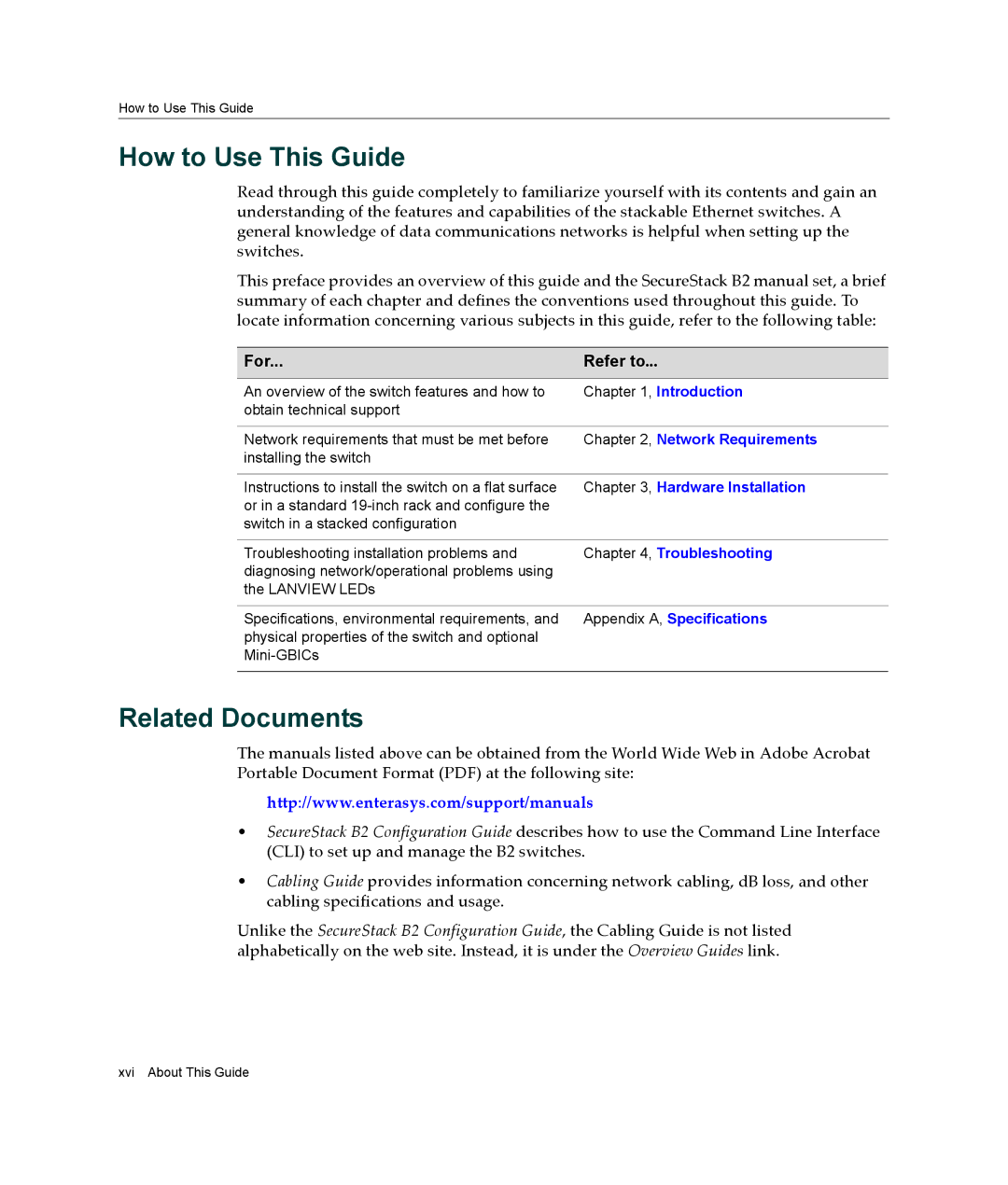How to Use This Guide
How to Use This Guide
Read through this guide completely to familiarize yourself with its contents and gain an understanding of the features and capabilities of the stackable Ethernet switches. A general knowledge of data communications networks is helpful when setting up the switches.
This preface provides an overview of this guide and the SecureStack B2 manual set, a brief summary of each chapter and defines the conventions used throughout this guide. To locate information concerning various subjects in this guide, refer to the following table:
For... | Refer to... |
|
|
An overview of the switch features and how to | Chapter 1, Introduction |
obtain technical support |
|
|
|
Network requirements that must be met before | Chapter 2, Network Requirements |
installing the switch |
|
|
|
Instructions to install the switch on a flat surface | Chapter 3, Hardware Installation |
or in a standard |
|
switch in a stacked configuration |
|
|
|
Troubleshooting installation problems and | Chapter 4, Troubleshooting |
diagnosing network/operational problems using |
|
the LANVIEW LEDs |
|
|
|
Specifications, environmental requirements, and | Appendix A, Specifications |
physical properties of the switch and optional |
|
| |
|
|
Related Documents
The manuals listed above can be obtained from the World Wide Web in Adobe Acrobat Portable Document Format (PDF) at the following site:
http://www.enterasys.com/support/manuals
•SecureStack B2 Configuration Guide describes how to use the Command Line Interface (CLI) to set up and manage the B2 switches.
•Cabling Guide provides information concerning network cabling, dB loss, and other cabling specifications and usage.
Unlike the SecureStack B2 Configuration Guide, the Cabling Guide is not listed alphabetically on the web site. Instead, it is under the Overview Guides link.
xvi About This Guide
